For many Americans, the COVID pandemic changed the way they live and work — indeed, where they live and work. Motorhome sales are running at record levels as more folks take to the road, often full-time.
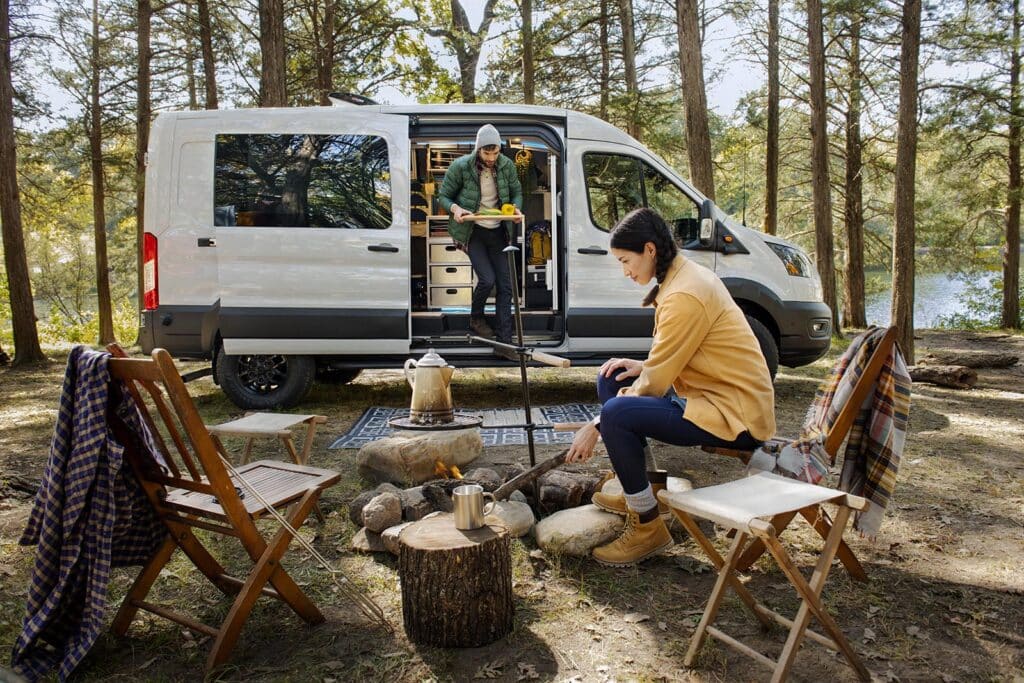
And the new 2023 Ford Transit Trail is designed to make it easier for even more Americans to enjoy “the van life.” Based on the familiar Ford Transit van, the Trail package undergoes a number of unique modifications that Ford expects to appeal to motorhome fans, whether they want to do their own customization or turn to a commercial outfitter.
The Transit Trail is designed to let them “go anywhere they want in a van that can be both mobile office and home,” said Tim Braughman, general manager of Ford Pro.
A big business
Recreational vehicles make up a $140 billion industry, Braughman noted during a media background briefing earlier this week. And sales of self-propelled models are running red hot, with an estimated 50,000 expected to be delivered this year.
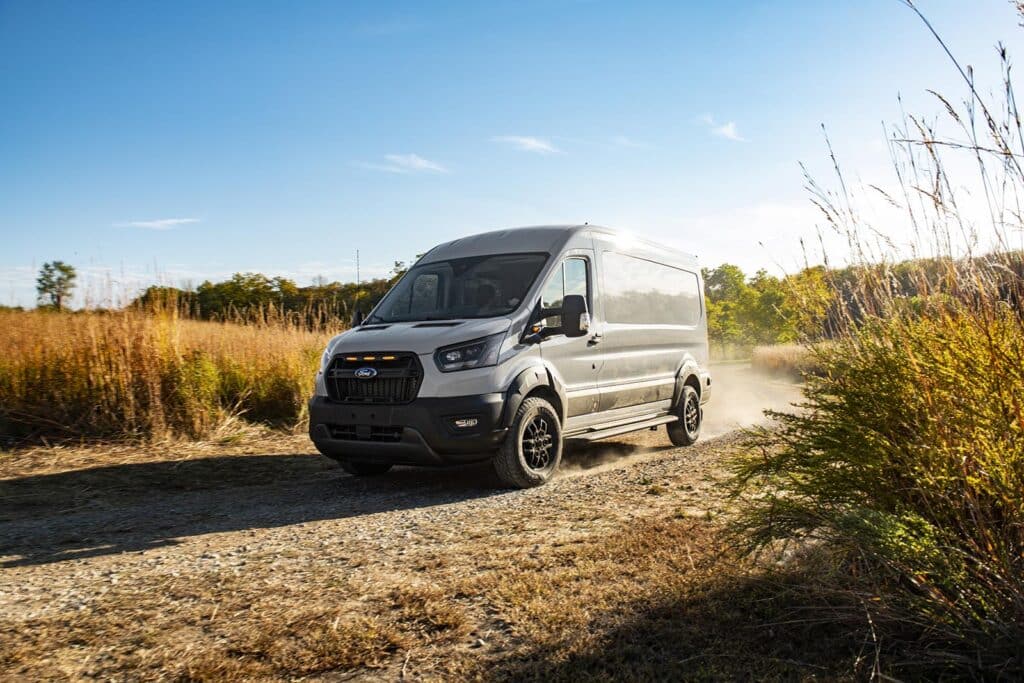
Among motorhomes, the Class B segment is proving especially popular with the millennials who are just entering the RV world. Traditionally, many young buyers opt for older vans that they can convert themselves. Ford is betting that it can win over many of those buyers by offering the features they need at a relatively affordable price — along with the warranty coverage unavailable on older vehicles.
Like a standard-issue Transit van, the Transit Trail will be offered in a variety of configurations, including short and long, as well as standard height and tall packages. In the latter configuration, even a tall adult can stand up inside the van, and the largest version of the Transit Trail offers a full 473 cubic feet of interior space.
Unique features
Like the conventional Transit, the Trail van is powered by a 3.5-liter Ecoboost V-6 making a solid 310 horsepower and 400 pound-feet of torque. It’s paired with a 10-speed automatic and sends power to all four wheels. It also adds a limited-slip differential to help enhance traction off-road.
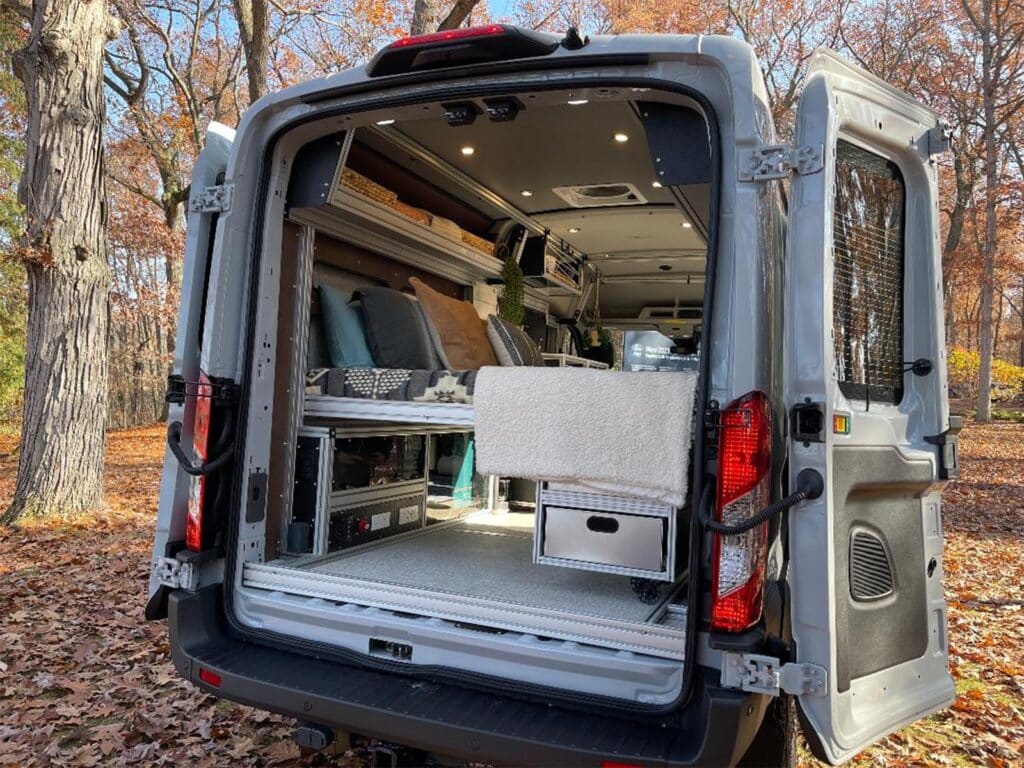
And to further boost the van’s ability to go beyond the beaten path, it gets a limited-slip differential, as well as a 3.5-inch body lift.
Other updates include:
- A 2.75-inch wider track and 3.5-inch body lift;
- A unique grille, fascia and headlights;
- Standard Ford Sync4 infotainment system and a 12-inch touchscreen;
- Numerous USB outlets and an inverter to provide 400 watts of AC power;
- Swivel front seats, and other features; and
- The van rides on 30.5-inch Goodyear all-terrain tires, 2.5 inches larger than on the standard-issue Transit van.
Making things easy
The Trail edition offers a number of special options, such as a 31-gallon gas tank, 30% bigger than the standard issue. And to allow do-it-yourselfers to avoid the challenging task of cutting into the van’s roof, it can be ordered with a built-in vent and fan.
These are “things that would be difficult for customers to do themselves,” said Transit Trail chief engineer Ray Eyles.
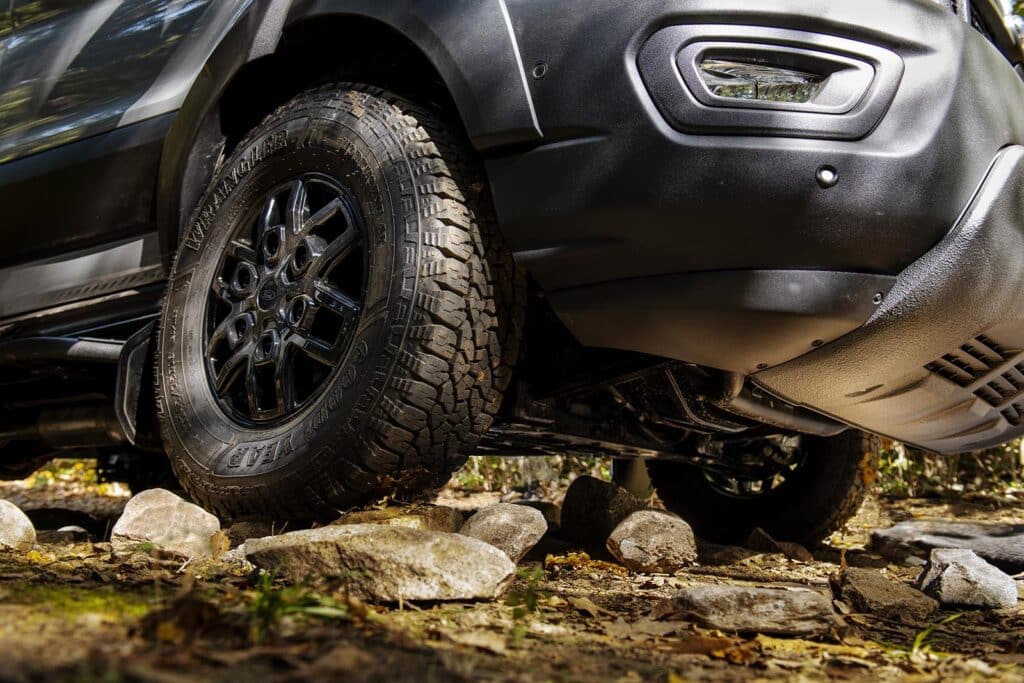
Ford is betting that the Transit Trail will find a “substantial” niche among do-it-yourselfers, said product marketing manager Julie Ellenberger. “They’re driving a lot of the growth” in the Class B motorhome segment,
A blank canvas
For them, the Transit Trail is a “phenomenal blank canvas” that can be customized in any number of different ways, whether used as a mobile home, office, or simply as a four-wheeled retreat when heading out on adventures.
But the majority of customers are still expected to turn to professional upfitters, Ellenberger added. “They don’t want to wait for their adventures to begin. They just want to jump into their vans and go.
Ford has set up a new website, FordUpfits.com, to help buyers connect with a network of upfitters and interior installers.
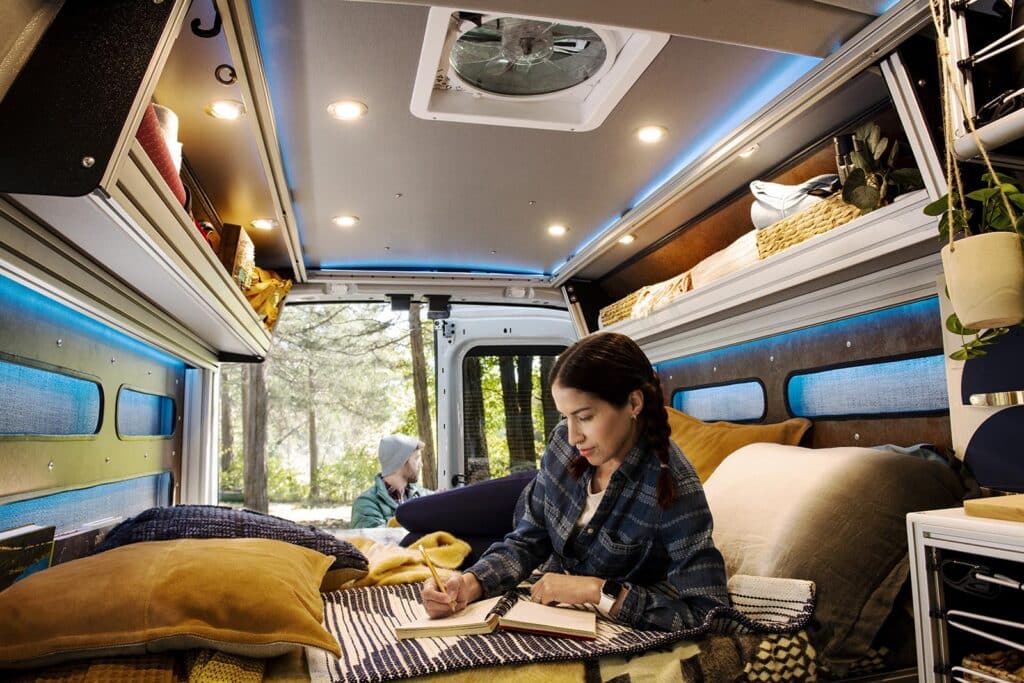
Pricing and availability
The 2023 Transit Trail starts at $65,975 — plus delivery fees. Beyond that, said Ellenberger, the process of customizing the van can run from “a few thousand dollars … up to a few hundred thousand.”
Ford began taking orders Nov. 3 and plans to begin deliveries of the 2023 Transit Trail later this year.
A dominant player
Ford has been a longtime player in the recreational vehicle industry. A century ago, company founder Henry Ford would regularly take vacations with a group of power brokers he dubbed “The Vagabonds.” They included Thomas Alva Edison and Harvey Firestones, as well as former presidents Warren G. Harding and Calvin Coolidge.
It got serious about the motorhome side of the business with the arrival of the Econoline van in 1961.
Today, it’s the dominant supplier of chasses and powertrains for Class A and B motorhomes, as well as vans for Class C conversions.







